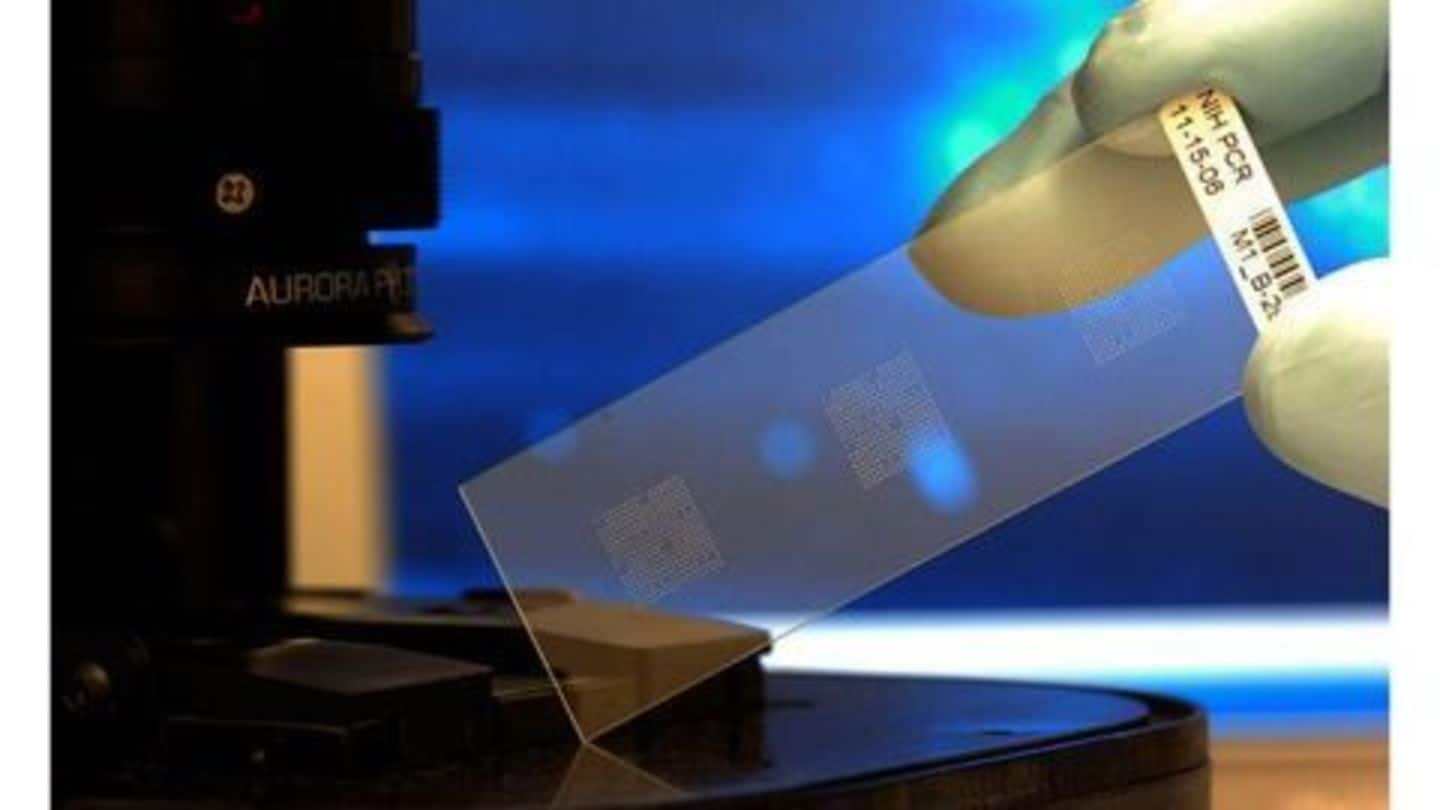
New test reveals risk of Alzheimer's disease in three hours
What's the story
A London-based biotech company, Randox Laboaratories, has developed a £25 test to identify people at a higher risk for Alzheimer's in just 3 hours. The test will use a biochip to analyse genetic material in the blood and look for mutant apolipoprotein genes (ApoE4). Multiple tests can be done on one blood sample, is comparatively cheaper and as accurate as existing DNA molecular tests.
Information
What is Alzheimer's Disease?
Alzheimer's is a type of dementia that causes problems with memory, thinking and behavior. Symptoms develop slowly, worsen over time and might interfere with daily activities. It accounts for 60-80% of dementia cases. The greatest risk factor is increasing age and majority of people with Alzheimer's are over 65 years of age. No cure is available but symptoms can be treated and research continues.
Detection
Cause of Alzheimer's
A specific variation of the apolipoprotein gene (ApoE4) in the blood is associated with increased risk of developing Alzheimer's disease. The apolipoprotein gene is inherited from each parent. When a patient inherits the ApoE4 variant from one parent, the risk of developing Alzheimer's is three times more, whereas one who inherits ApoE4 from both parents is 8-12 times more likely to develop the disease.
DNA Screening
Current tests available
Current DNA testing is expensive and takes days for results to come back. Screening for the Alzheimer's mutation involves complex molecular testing carried out in special labs. DNA is extracted from the blood and it involves a waiting period for Polymerase Chain Reaction's completion. The Randox-biochip analyses protein in the blood. When paired with medical and family history, it has real potential for early-detection.
Information
Cures available
Alzheimer's disease is progressive and currently incurable, though there are treatments to reduce symptoms. Drugs which halt progression are currently undergoing clinical trials. Until then, people are encouraged to exercise, quit smoking, keep their minds sharp with puzzles and eat healthy to mitigate the risk.
15 Aug 2016
Period pain drug cures Alzheimer's symptoms in mice
According to University of Manchester's research, Alzheimer's can be cured by a Non-Steroidal Anti-Inflammatory Drug called Mefenamic Acid used for menstrual-pain relief. The tests, which were carried out on mice, resulted in complete reversal of brain inflammation in the test subjects and restoration of lost memory. The drug targeted the inflammatory pathway called NLRP3 inflammasome. The study was published in the journal 'Nature Communications'.
Data
Alzheimer's Disease statistics
In 2010, dementia resulted in about 486,000 deaths. More than five million Americans are living with Alzheimer's disease and 850,000 people in UK have dementia, which is expected to reach a million by 2025. In 2015, approximately 48 million people worldwide were suffering from Alzheimer's.